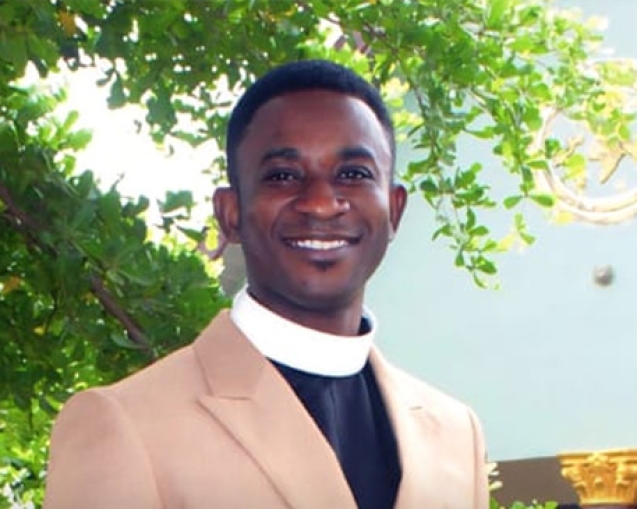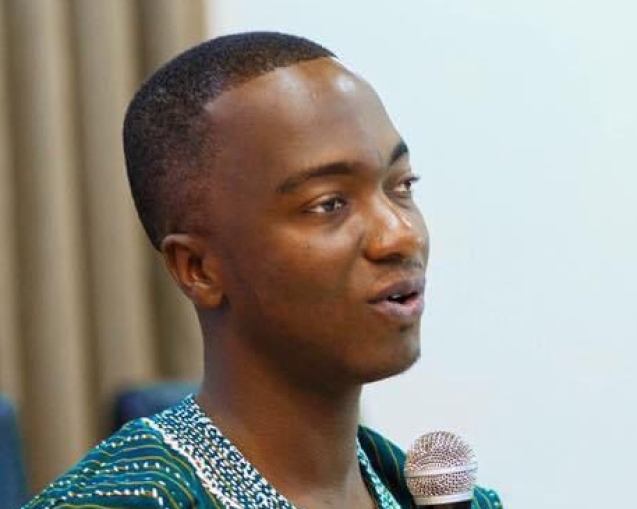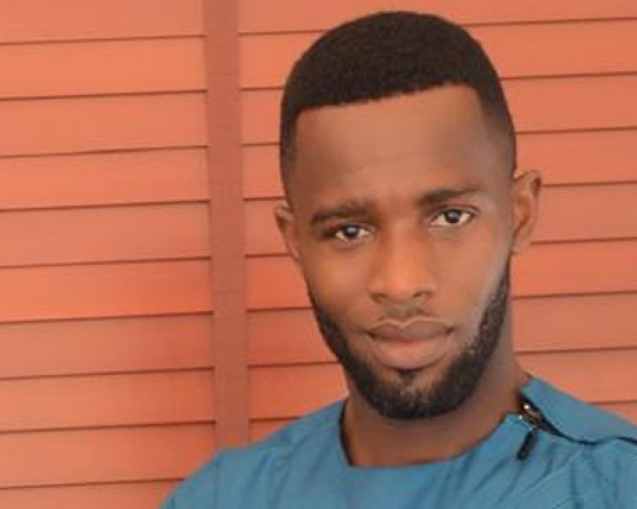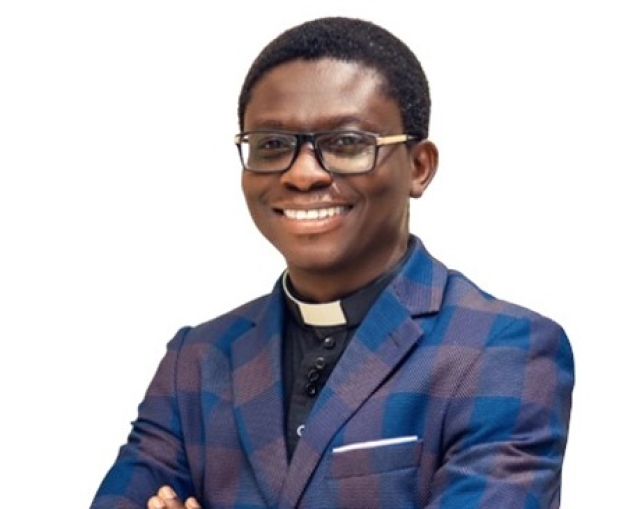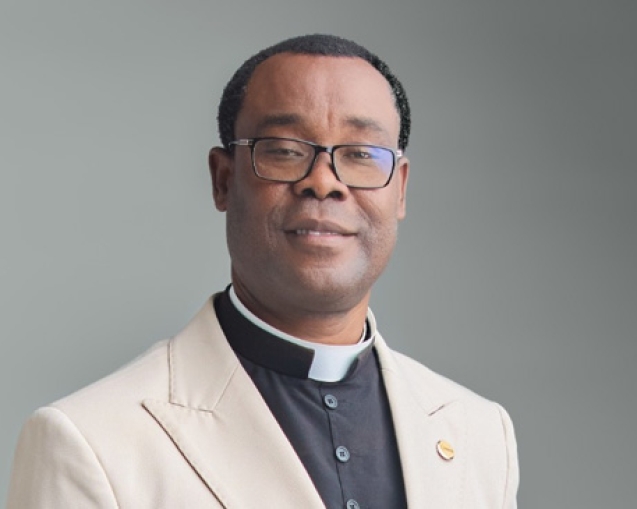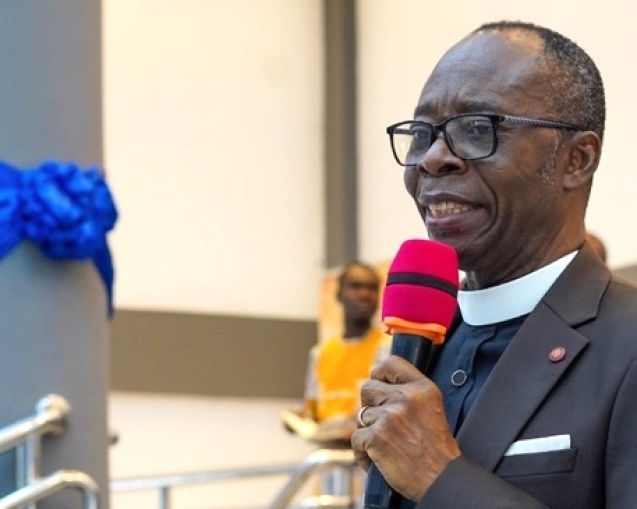- By Elder Dr. S. Ofotsu Ofoe
Opening
After 37 years of active full-time pastoral ministry in The Church of Pentecost (CoP), Apostle Alfred Koduah draws down the curtains on his active ministry this weekend, August 15, 2021. He has affected the beliefs and practices of the CoP in significant ways. His giant physique is in agreement with his gigantic undertakings within the CoP. The pastoral interest, theological undertakings and administrative practicality of Apostle Koduah have arguably extended the frontiers of the CoP in postmodern ministry in the 21st century. For a church to hold the view that it is essential for Christianity to break camp towards making the world its parish and engaging various unexploited spaces within society, the work of the Apostle stands tall as a case of reference in enabling a forceful Christian presence and impression the world over. This article is designed to briefly engage with aspects of his ministry that shaped the doctrinal stance of the CoP, demonstrates its missiological strength of today, and shows the brunt of the Pentecostal movement in Ghana.
Reminiscing the CoP of 1984
Apostle Alfred Koduah came into the full-time ministry in 1984, two years after Pastor James McKeown retired from his chairmanship of the CoP after serving for 44 years, and the first African chairman, Apostle Fred Stephen Safo took office as Chairman of the CoP. By this period, the administrative structure of the church had achieved some stability. With the establishment of the Executive Council two decades short of 1984 to supplement the already institutionalised General Council, the various leadership wrangling of the earlier years have significantly subsided. The CoP was then poised to grow and advance its ministry. Within this period the CoP became Ghana’s largest Pentecostal church. A later study done by the Ghana Evangelism Committee in 1989 confirmed this. By 1984, the membership of the church in Ghana stood at 10,350 with 2,339 assemblies. The six other nations the CoP was then operating in had a total membership of 10,420 with 248 assemblies, according to the Statistics Department at the General Headquarters of the CoP.
Those who have entered the full-time ministry around that time would have been fully aware of the great expectation required of them in the context of happenings within that time. Good enough, the Pentecost Bible College which was started in 1972 but closed down a year later, was re-opened in 1982. This gives persons like Apostle Koduah the opportunity to earn a certificate in Pastoral Studies. His ministerial formation was undoubtedly shaped and aided by his studies at the Pentecost Bible College.
In the year he was called into the full-time ministry, the College was moved from New Abossey Okai to Madina, both in Accra. In that year, this college was renamed Church of Pentecost Bible Centre, and its new block at Madina was dedicated on June 3, 1984. Apostle Koduah was called from Asante Bekwai and stationed at Adukrom-Akuapim. Some of the brothers who were called in that same year include M. K. Ntumy called from Yendi, Narh Affum called from Asuom, M. O. Andoh called from Cape Coast, E. Achim Gyimah called from Okyinso, Samuel Antwi called from Kumasi, T. K. Owusu Bore called from Twifo Heman and E. K. Appiah called from Obuasi. In all, 21 brothers from Ghana were called into the full-time ministry in 1984. The Lord used them to accomplish a lot to his glory. Apostle Alfred Koduah shines through.
The CoP into the 21st Century
Apostle Alfred Koduah has distinguished himself as a specialist in exposing emerging trends in society and their impact on Christianity. He has researched this thoroughly. He is still studying this particular subject. He has given lectures and published adequately on emerging trends. The CoP has benefited greatly from this. Regarding the erstwhile conservation nature of the CoP generally, Apostle Koduah has challenged the CoP to break camp and advanced in order to remain relevant in a world that is changing very rapidly. If the CoP is seen as keeping pace with today’s world, he is one of the main architects of that.
In this vein, he has affected various ‘untouchable’ structures and thought of the CoP. For instance, he influenced the modification of the religious practice of head covering by the women of the CoP; and the tradition of segregating men and women in the seating arrangement at church meetings. He has raised a number of other issues in his paper, “The Church of Pentecost in a Postmodern Society” presented during the McKeown Memorial Lectures to commemorate the 50th Anniversary of the CoP in September, 2003. These issues have shaped the thought and practice of the CoP today. The issues include but are not limited to attachment of baptisteries to certain chapels; putting up chapel complexes to cater for meetings of children, youth and adult church meetings; institutionalization of the ministry to the deaf and dumb; introduction of youth pastor concept, among others.
Regarding the head covering tradition, Apostle Koduah made a call in 2003 thus, “Considering the sensitive and controversial nature of women’s head covering in the Church today, I humbly call for a theological debate on the issue in the Church to arrive at a firm position on it in this postmodern world.” This practice has been part of the umbilical cord of the CoP. Going into a postmodern world, it has become quite apparent that such a practice is outmoded and needs a review. It was his study and subsequent presentation on the issue of head covering that influenced the “2010 Communique” of the CoP leading to the review of the practice. It seems he has been concerned about the practice long before he was tasked to give a lecture on it on January 19, 2010 at the Head’s Prayer Meeting of the CoP. For his Master’s thesis presented to the Regents Theological College in UK (Master’s degree awarded by the University of Manchester), he discussed the topic, “The Significant Religious Practices in The Church of Pentecost and their Implications for the Future.” In this thesis, he touched on the issue of head covering. Perhaps, this was what caused leadership of the CoP to give him the responsibility of researching the issue further. The practice of head covering for religious reasons has been explored further in his book, The Woman’s Head-Covering in Church published in 2010.
The CoP has been alerted on emerging philosophies and how they are shaping the Christian belief today through the work of Apostle Koduah. The CoP has thus become concerned about such ideologies. The subject is being taught at the School of Theology, Missions and Leadership of the Pentecost University to incoming pastors. He has been an adjunct lecturer in this regard. The lay leaders of the CoP have also been receiving training on the subject. By this, the theology of mission of the CoP has been positively impacted by Apostle Alfred Koduah. Today, the CoP has been able to develop workable missional paradigms to do its ministry in this century.
Catalyst of the Youth Ministry
To have a ministry of the CoP that would cater for the special needs and intentional discipleship of young people has not been given much attention during its formative years. However, young people were arguably regarded as essential part of the Christian ministry. This is evident in the call of some very young people into the pastoral ministry. For instance, the following were called at an early age in various periods of the church: Joseph Egyir-Paintsil, 21 years in 1949; Martison Kwadwo Yeboah, 26 years in 1950; Thomas Nyarko, 25 years in 1952; Fred Stephen Safo, 24 years in 1956; Michael Kwabena Arnan, 22 years in 1959; Opoku Onyinah, 22 years in 1976; among others.
Over the years, some efforts have been made to group the young people in the CoP together. The initial purpose was mainly in pursuance of its evangelism core value. On various campuses, students within the CoP were gathered steadily. This culminated in the formation of the Pentecost Students and Associates (PENSA) in 1980. PENSA was merged with the then Witness Movement into Pentecost Youth and Evangelism Movement (PENTYEM) 1991. The need of having a full-fledged group for the young people prevailed. This led to the formation of the now Youth Ministry in 1996.
Apostle Alfred Koduah has breathed fire into the Youth Ministry of the CoP. In his book, Teenage Ministry: A Neglected Mission Field published in 1997, a year after the Youth Ministry was instituted, draws attention to the great benefit churches can draw from paying particular attention to young people. He realised that teenagers have been ignored in the structures and models of churches. His recommendations have shaped the Youth Ministry of the CoP in no small way. The huge generational gap that existed between the old and young of the CoP was significantly addressed. He has taught widely on how to communicate with young people. He would often tell young people; “Do not think I am old when it comes to the use of your terms; I know them.” The immediate past Youth Director of the CoP, Apostle David Nyansah Hayfron, in presenting a paper titled, “Effective Handling of Teenage Ministry in The Church of Pentecost – The Role of the Youth Worker” during the historic Global Ministers and Wives Conference of the CoP in January 2017, placed his presentation in the backdrop of this important work of Apostle Koduah. I think it was the realisation Apostle Hayfron made regarding the influence of Apostle Alfred Koduah on the Youth Ministry that necessitated the perceptive he took, as seen in the early part of his paper.
Essentially, I would suggest that it was his great concern for youth ministry that caused Apostle Koduah to suggest the adoption of the youth pastor concept back in September 2003 in his McKeown Memorial Lectures paper. Let me state that he made a suggestion for children pastors as well. Over a decade later, this concept has been adopted in the CoP. He saw the relevance of this and I believed he pursued it further. The CoP per its demography remains a church of the young. For example, in the State of the Church Address by its Chairman during the 15th Extraordinary Council Meeting in May 2017, 71% of 2,367,253 of its membership in Ghana alone was young people up to 35 years of age. Special attention must continue to be offered to the ministry to young people. It is a missional and a rewarding venture indeed.
Indefatigable Teacher and Scholar
Apostle Alfred Koduah’s ministry in the CoP has set a great benchmark worthy of emulation by future generations. He is diligent when it comes to studying, research, writing and teaching. Though he came to the full-time pastoral ministry with just a certificate in Agricultural Science, he worked hard to study up to the doctoral level, earning a PhD in Theology from the South African Theological Seminary. He has written a number of books and presented several papers. It may seem that in recent times of the CoP, when it comes to the controversial and impressing issues within the church, he is the one who is given the assignment to research such problems. He has written and published a number of books. Some of these books include: If a Man Dies, Will He Live Again?, Christianity in Ghana Today, Who is Disturbing the Nation?; The Christian in a Sex-Craze World; The Pastor’s Health (co-author); Who is Disturbing the Church?; This Thing Called Salvation; Preparing for the Ultimate Journey: The Need to Develop New Attitude towards Death; Impacting Generations: The Need to Avoid the Generational Gab Syndrome in the Church; Managing the Decline of Christianity in the Western World: Lessons for Churches in the Developing World; The Ugly Face of Poverty; Unlocking the Psalms; Ten Socio-Economic, Political and Religious Dangers Confronting Contemporary Christianity; and Fifteen Ecclesiastical Dangers Confronting Contemporary Christianity. Some of his presented papers include “Managing the Generational Gap Syndrome,” “Head Covering,” “The Disciple of Christ as a Steward,” “An Example of Christ’s Leadership,” “The Role of Directive Prophecy in the Selection of Ecclesiastical Leadership: The Church of Pentecost’s Experience,” “Drawing a Balance Between Pentecostal Spirituality and Formal Theological Training,” “Ghana Pentecostal and Charismatic Council: Celebrating Fifty Years of Pentecostal Influence,” and “God’s Amazing Financial Provision for the Church of Pentecost.”
His research works which he packages for the consumption by both scholars and lay church leaders have made groundbreaking realisations and provoked a number of changes within the CoP. He has played a key role in the shaping of the Prophetic in the CoP. “The Role of Directive Prophecy in the Selection of Ecclesiastical Leadership,” for instance, led to the modification of aspects of the Constitution of the CoP. This paper revealed the historical antecedents and the development of the prophetic office, with a special interest in how directive prophecies have led to the election of key leaders in the CoP. It pointed out the flaws and gave very helpful recommendations. Articles 12.3 (i), 13.3 (i) and 14.3 (h) of the Constitution in use at the time were amended. They initially read, “Where there is a directive prophecy on a candidate, it shall be judged on its own merit by the Electoral College. The candidate so accepted by the Electoral College shall be presented to the General Council to be voted upon.” To touch on only 12.3 (i), it was amended to read as follows: “All ‘directive prophecies’ and ‘revelations’ concerning candidates for consideration for the position of Chairman shall be communicated verbally or in writing to the Executive Council through the Chairman of the church”; “(j) The Executive Council regulating its own proceedings shall present a candidate to be voted upon by the Electoral College. The candidate so accepted by the Electoral College shall be presented to the General Council to be voted upon.” This among others demonstrates that he has affected the CoP so very fundamentally. Such influence was not limited to the CoP but spilled over to other Christian groups including the Ghana Pentecostal and Charismatic Council (GPCC) and the Bible Society of Ghana LBG, which he served as its vice president. In his book, Christianity in Ghana Today, published in 2004, he took note of the “Pentecostalisation of Christianity in Ghana”. This realisation shows the growing Pentecostal influence in Ghana. A paper he later presented to commemorate the 50th anniversary celebration of the GPCC acknowledged further this Pentecostal influence in Ghana.
His style of teaching brings home the subjects he taught. He has skillfully exposed the various topics to the delight of many. His online Weekly Bible School has brought to light subjects that could be regarded as theological hard nuts to the general church populace. He adequately and painstakingly dealt with several topics including “Hamartiology (The Study of Sin),” “Biblical Perspective on Vindictive Prayer” and very extended ones such “Unlocking the Psalms,” “Understanding the Old Testament” and “Understanding the New Testament.” He has taught on various topical issues in everyday life that has prepared many for the practical life and godliness.
Leadership Ardour and Administrative Dexterity
Having served as the chief scribe of the CoP from 2003-2013, the administrative fortunes have been nothing but brighter. Apostle M. K. Ntumy, one of the two chairmen he worked with as general secretary of the CoP, described him as “a man of ideas.” Apostle Prof. Opoku Onyinah has also eulogised his gigantic undertakings as the general secretary of the CoP. He points to the ultramodern Pentecost Convention Centre as a project in which Apostle Alfred Koduah played a key role in the establishment. In fact, the Apostle was the one who led a team to the UK and Nigeria to study various convention centres and advised the CoP adequately on its quest to put up one. He [Prof. Onyinah] personally informed me back in 2018, carrying a demeanour of great satisfaction, during a conversation that “he [Apostle Alfred Koduah] is very hardworking.” This cannot be further from the truth. The way he carries himself about testifies to that.
Apostle Koduah is credited with the digitization of the entire administrative organism at the General Headquarters. The infrastructure development which the church witnessed between 2003 and 2013 can in part be attributed to the Accelerated Infrastructure Development Fund which he moved for establishment when he was the general secretary of the CoP.
He believes in leadership development and has personally championed this at various levels. The leadership competence and pastoral affection of Apostle Koduah have been acknowledged. His ministerial ardour was in full force when he served as a missionary of the CoP in Zambia from 1994 to 1998. It is reported that he shaped significantly the doctrinal stance of the CoP in Zambia. Whilst in Zambia, two Elders, Ekow Badu Wood (now Apostle) and Nelson M. Lukwesa were called to the full-time ministry.
Conclusion
Apostle Alfred Koduah can be appropriately described as a reformer having fronted a number of groundbreaking ventures in the CoP significantly. He has been described as a skillful leader who knows how to handle controversial issues. His pastoral warmth is palpable. He is such an ardent Bible teacher and a great lover of the youth. The doctrinal stance, theology of mission, administrative system, and ministerial ethos of the CoP have been positively shaped by the ministry of this great Apostle of Christ. As he closes the chapter on his active full-time ministry, may the torch he has lit burn its way into every facet of the church of our Lord Jesus Christ.








